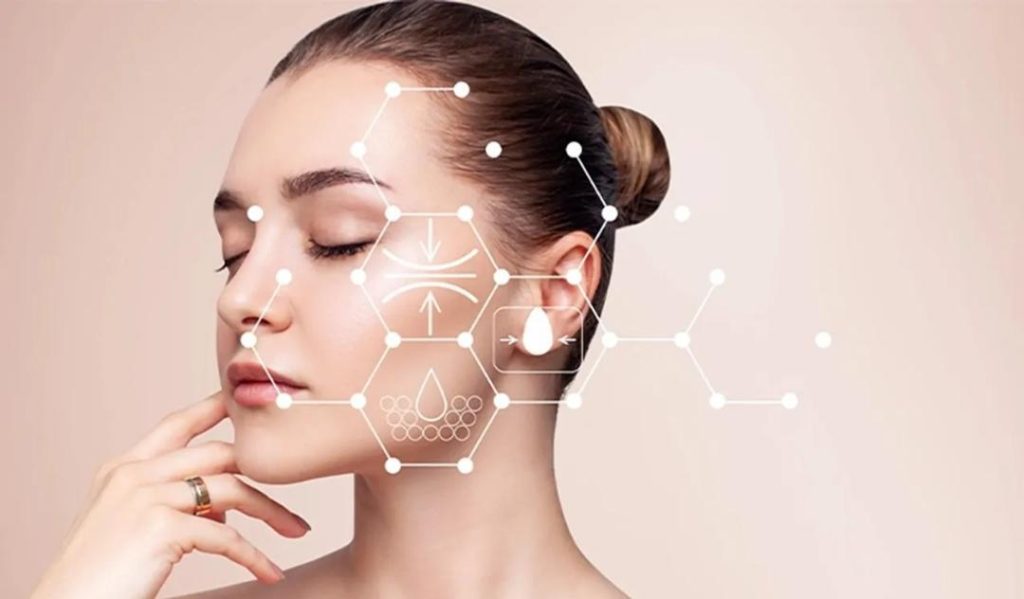
How AI & Innovation are Redefining the Beauty and Wellness Landscape
The skincare industry has undergone a remarkable transformation in recent years, moving from a focus on basic routines to a realm of personalized solutions, inclusivity, and cutting-edge innovation. As we look ahead to 2025, skincare trends are reflecting a deeper understanding of diverse skin needs, a commitment to wellness, and a harmony between science and nature.
One of the most significant drivers of this evolution is the increasing adoption of artificial intelligence (AI) in the beauty and wellness industry. AI is being used to analyze vast amounts of data on skin types, concerns, and behaviors, allowing for the creation of highly personalized skincare regimens. This personalized approach is revolutionizing the way we approach skincare, enabling individuals to take control of their skin health and achieve more effective results.
AI-powered skincare platforms are using machine learning algorithms to analyze data from various sources, including:
- Skin type and tone: AI can analyze skin data to identify specific skin types, such as dry, oily, or combination skin, and provide customized recommendations.
- Skin concerns: AI can identify specific skin concerns, such as acne, hyperpigmentation, or fine lines, and provide targeted treatments.
- Lifestyle factors: AI can analyze lifestyle factors, such as diet, exercise, and sleep habits, to provide recommendations for improving overall skin health.
Some examples of AI-powered skincare platforms include:
- Neutrogena’s AI-powered skincare app, which uses machine learning algorithms to analyze skin data and provide personalized skincare recommendations.
- Skin Analytics, a platform that uses AI to analyze skin data and provide personalized skincare reports and recommendations.
- ModiFace, a company that uses AI to create personalized skincare products and treatments.
In addition to AI, innovation is also driving change in the beauty and wellness industry. New technologies and ingredients are being developed to address specific skin concerns and improve overall skin health. Some examples include:
- Nanotechnology: Nanotechnology is being used to create targeted skincare products that can deliver active ingredients deep into the skin.
- Stem cells: Stem cells are being used to create skincare products that promote skin regeneration and improve skin texture.
- Plant-based ingredients: Plant-based ingredients, such as turmeric and green tea, are being used to create natural and effective skincare products.
Inclusivity is another key trend in the skincare industry. Gone are the days of one-size-fits-all skincare products and routines. Instead, the industry is shifting towards inclusivity, diversity, and representation. This shift is reflected in the creation of products and services that cater to diverse skin types, tones, and concerns.
Some examples of inclusive skincare brands include:
- Fenty Beauty, a brand that offers a range of foundation shades to cater to diverse skin tones.
- The Ordinary, a brand that offers affordable and inclusive skincare products with a range of skin types and concerns.
- Glossier, a brand that offers a range of skincare products that cater to diverse skin types and concerns.
Wellness is also playing a significant role in the skincare industry. Skincare is no longer just about applying products to the skin, but also about promoting overall wellness and self-care. This shift is reflected in the creation of products and services that promote relaxation, stress reduction, and mindfulness.
Some examples of wellness-focused skincare brands include:
- Aesop, a brand that offers natural and effective skincare products that promote relaxation and stress reduction.
- Dr. Hauschka, a brand that offers skincare products that promote overall wellness and self-care.
- Goop, a brand that offers a range of skincare products and services that promote wellness and mindfulness.
In conclusion, the skincare industry is undergoing a significant transformation, driven by AI, innovation, inclusivity, and wellness. As we look ahead to 2025, it is clear that the industry will continue to evolve, with a focus on personalized solutions, diversity, and representation. By embracing these trends, individuals can take control of their skin health and achieve more effective results.
Source:
https://www.shethepeople.tv/author-spotlight/guest-contributions/skincare-trends-for-2025-8728129






